Review: Agatha All Along, “Death's Hand in Mine” | Season 1, Episodes 7
Patti LuPone takes center stage in the season’s best episode yet
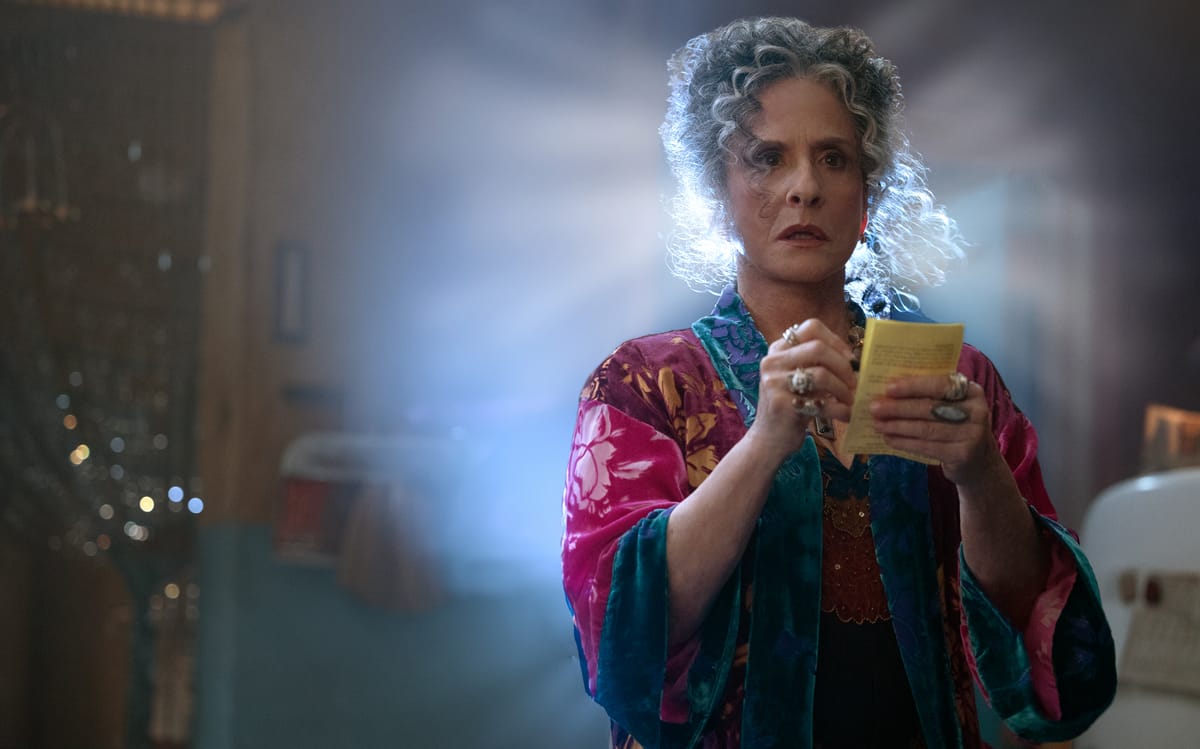
As I was reviewing the first half of Agatha All Along, I couldn’t tell if I was being too hard on the show. Maybe it was unfair to compare it to the heights of WandaVision or Loki. Maybe this witchy series just wanted to be simple, old-fashioned TV with a predictable episodic structure and corny character work. Maybe I should stop complaining when the trials were too simple or the characters acted too erratic. After all, not every television show needs to strive for greatness, sometimes just being “good” is good enough.
Except it turns out my expectations for Agatha All Along were, if anything, not high enough. This back half of the season has delivered banger after banger, upending expectations, paying off fan theories in a way that feels powerful rather than cheap, and crafting character work that is truly meaningful—not in a “girlfriends chit chatting around a fire” way, but in a “let’s metaphorically contemplate the entire experience of life and death and womanhood” kind of way.
The first four episodes of Agatha All Along were good. The past two have been great. And tonight, the series delivers a truly standout hour of genre TV, one that’s edging up there towards Star Trek: The Next Generation’s “The Inner Light,” Lost’s “The Constant,” and Doctor Who’s “Heaven Sent” in terms of how much emotional meaning it manages to cram into its clever sci-fi mystery. (Even more impressive when you consider that it does all that in just 28 minutes.)
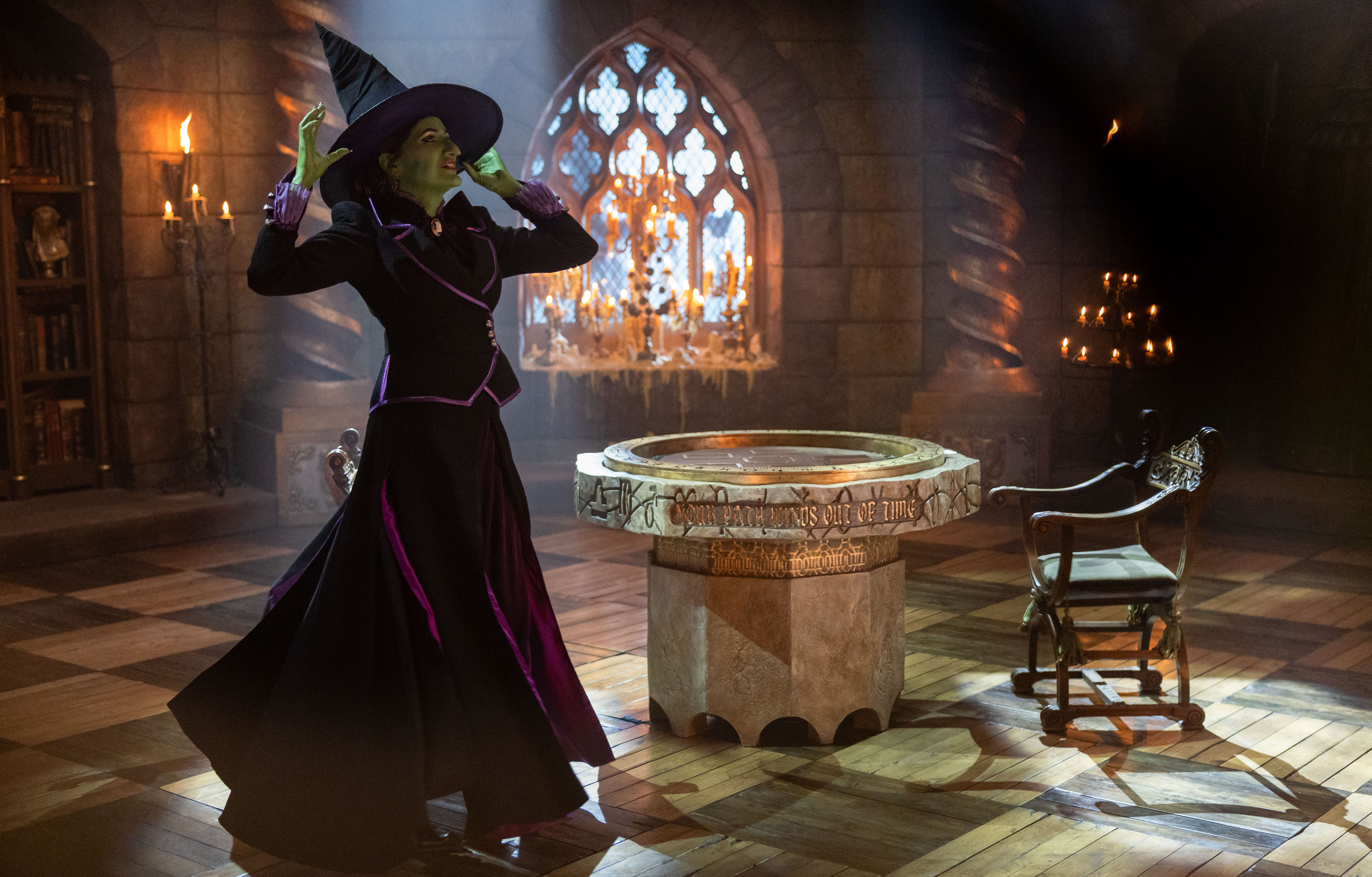
Befitting Lilia’s unique temporal existence, let’s start at the end. Before Lilia sacrifices herself to protect her coven, she leaves Jen with one simple sentence to sum up her life: “I loved being a witch.” It’s a line that immediately made me think of the WandaVision finale, back when Wanda said goodbye to Billy and Tommy by telling them, “Thanks for choosing me to be your mom.” Both lines are tearjerking in their simplicity, but—for as good as the WandaVision line is—it’s also part of a larger tradition of stories about powerful women who are defined by their relationship with their children (one Agatha All Along is also exploring with Agatha and Nicholas Scratch).
Lilia’s story is different. She doesn’t have kids. She isn’t married. She’s spent large swathes of her life isolating from the world. And she’s not just “centuries old” in an abstract way, like the other witches in the series; she’s also being played by an actress in her mid-70s. In other words, she’s exactly the kind of woman who can so often be rendered invisible—not just in pop culture but in the real-world too. (“Forgotten” is the word Lilia uses.) It’s why her coven is so quick to write off her temporal interjections as just the ramblings of a batty old woman.
Lilia is, at best, the kind of character we’re used to seeing as a quirky supporting player in someone else’s story—a fairy godmother to a younger heroine, so putting her at the center of a time-hopping fantasy epic is quietly revolutionary. She may be dressed as Glinda, but she’s no all-seeing, benevolent mentor. She’s a flawed, flesh and blood woman who’s still discovering things about her life and her powers right up until the very end. “Death’s Hand in Mine” argues that Lilia’s life matters not because she was someone’s mom or wife or teacher, but because she was a person in her own right. A witch who loved her craft and who died doing it. And that’s just not the kind of story I can remember many genre shows telling before.
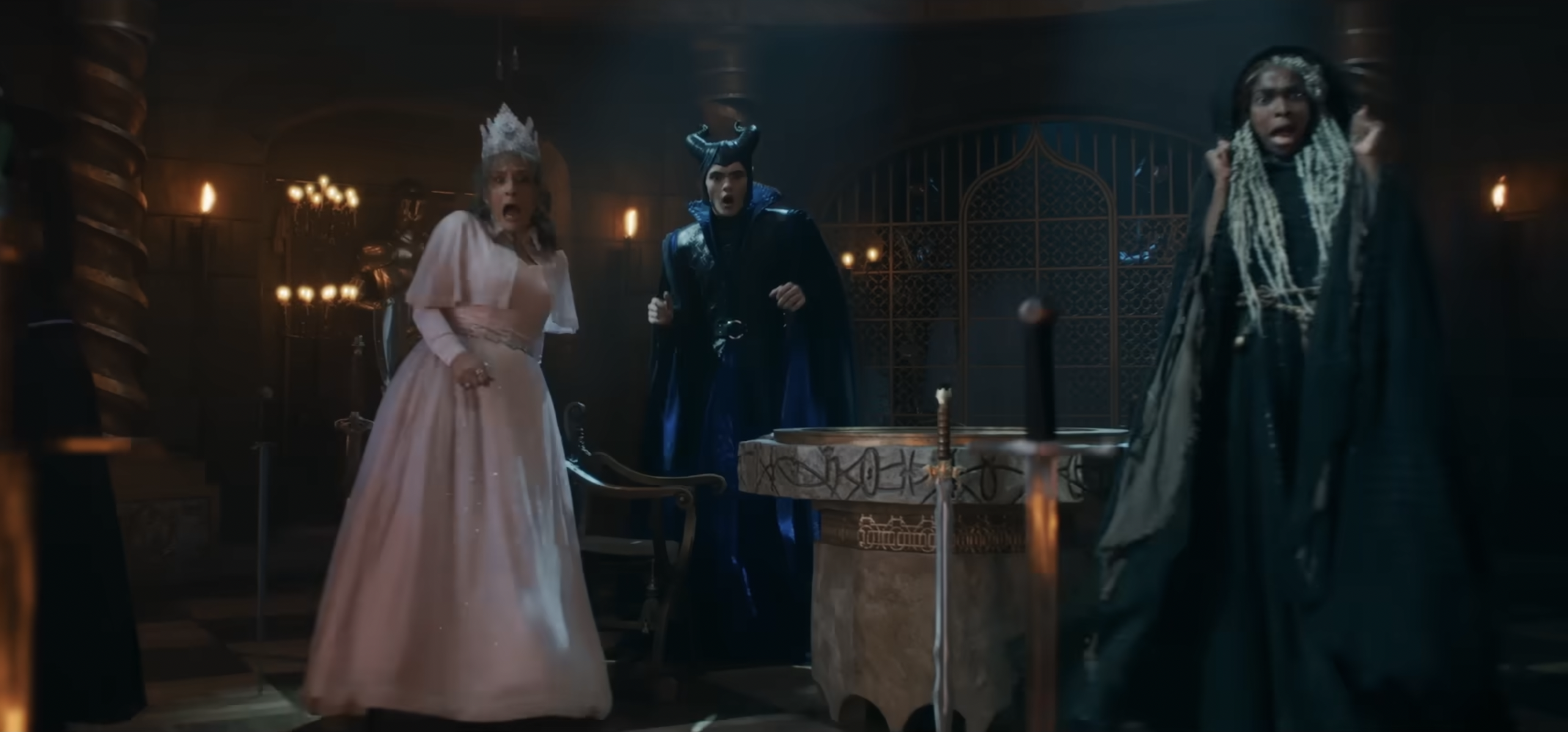
The fact that showrunner Jac Schaeffer chose to direct this episode suggests that everyone behind the scenes recognized just how special it is too. (Her only other directing credits are the double-header premiere.) And Schaeffer delivers some of the most memorable images of the season here—from the eerie opening shot of Lilia falling through darkness to the welcome sense of calm that instantly hits whenever Lilia zaps back into her childhood divination lessons in Sicily. The sweeping score from Christophe Beck is also crucial when it comes to grounding us in Lilia’s emotional arc, even as time literally swirls around her.
Indeed, save for an opening segment with Agatha and Billy to introduce this week’s “famous pop culture witches” Tarot trial, writers Gia King & Cameron Squires anchor this episode entirely in Lilia’s perspective. That means we get a whole lot of intentionally jarring scenes where Lilia “wakes up” in a new place with someone filling her in on stuff she just said to them but that she hasn’t yet experienced herself. And while the script does some welcome handholding when it comes to revisiting all of Lilia’s random interjections from throughout the season (just what I asked for in the Stay Observations last week!), it also trusts its audience to follow along with some pretty trippy time jump stuff too.
Like the best closed loop stories, the episode eventually circles back around to fill us in on the “gaps” we missed (creating no small number of fun bootstrap paradoxes in the process). But even when we’re confused about the plot in the moment, we at least have Lilia’s linear emotional journey to anchor us. It’s a neat screenwriting trick that allows the episode to be twisty and turny, while still grounding us in an arc that’s slowly building up to Lilia’s final sacrifice.
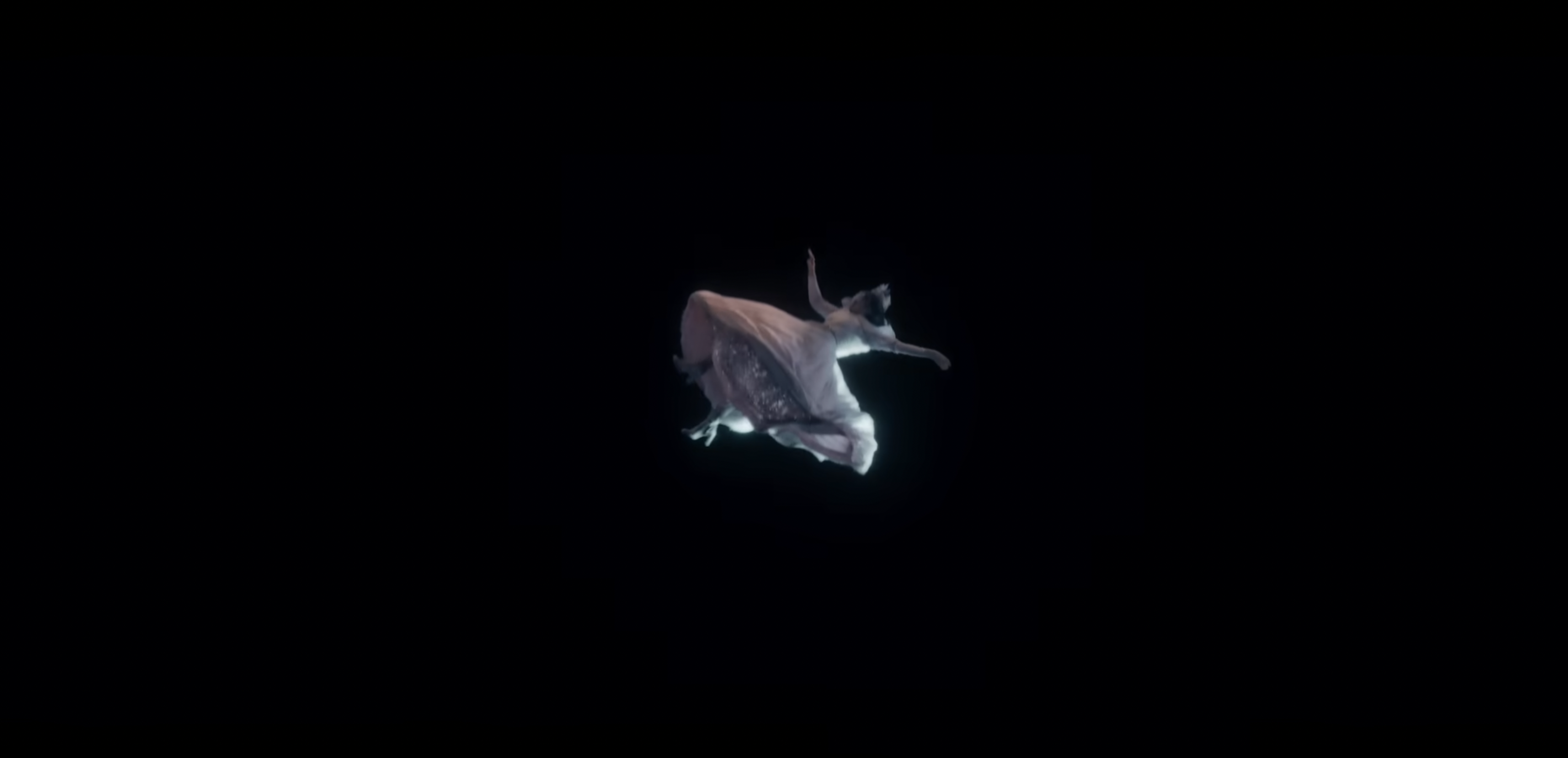
The trial itself is also great—memorable in its “swords from the ceiling” threat and also not so obvious and easy that you’re just waiting around for the coven to figure it out. The stakes genuinely feel sky high, and the final “twist” that Lilia needs to read her own cards, rather than Billy’s, is a perfect metaphor for the way she steps into the hero role this week. Witchcraft-wise, the Tarot challenge is also way more meaningful than the vague potion and protection stuff that Jen and Alice got to do in their respective trials. And it’s a great way to work in the “Rio is Death” reveal too. I don’t know what Rio being Death means, exactly, but I get why and how Lilia figured it out and that’s enough for now.
Of course, this episode wouldn’t work as well as it does without its standout performances; mostly obviously from Patti LuPone but also from Sasheer Zamata as well. I won’t have thought of Lilia and Jen as a natural duo for the show to pair off, but their dynamic is fantastic together. Jen—the most rational, practical member of the Coven of Misfits—finally takes the time to really listen and understand Lilia’s experience, rather than merely writing it off. And part of what makes Lilia’s big sacrifice moment so moving is how emotionally Jen responds to it. Going into this episode, I don’t know if I would’ve picked Jen as “the path ahead,” but after Zamata’s quietly empathetic work here, I totally see it.
Still, this is clearly LuPone’s show and it would be hard to overpraise the work she does. A lesser actor might’ve really leaned into the over-the-top melodrama of Lilia’s big emotional journey, but LuPone never loses the edge of worldweariness that defines Lilia too—a quality she seems to share with her mentor (mother?) back in Sicily. After living years of a life where all she could see was the inevitable deaths of those she loved, it became easier for Lilia to close herself off. She resigned herself to being alone and safe and never surprised by anything, rather than truly opening herself up to new experiences. It’s only when her own death becomes inevitable that she finally starts to live again. “I was falling… I will fall,” she realizes. That’s when she can finally take to heart her mentor’s question, “What will you do with your remaining time?”
LuPone may be famous for her diva public persona, but there’s nothing diva-ish about this performance. In fact, it’s that very sense of holding back that makes Lilia’s arc so moving—particularly as she finally comes into her full power in the final moments of her life. Lilia gets her big “badass” moment when she kills the Salem Seven, but her first real hero moment is the earlier note of vulnerability when she asks Jen to join her because she’s her “sister in the craft.” Part of stepping into her power means letting other people into her life again—including some gifts/parting words of wisdom for Agatha, Billy, and Jen. Lilia may have spent centuries feeling isolated and overlooked, but after how she saves her coven here, it seems clear she’ll never be forgotten again.
Stray observations
- So Agatha is the Wicked Witch of the West, Billy is a fabulous looking Maleficent, and Lilia is Glinda the Good, but who is Jen supposed to be? The witch from Into the Woods? Or maybe the Evil Queen when she disguises herself in Snow White and the Seven Dwarfs?
- There’s something so beautiful in the way this episode links the beginning and end of Lilia’s life together. It feels like she’d been mentally dividing her life into “before” and “after” she lost her first coven, and now she finally gets to experience a true sense of unity and closure.
- While we don’t get answers, this week’s episode confirms we are supposed to be thinking about two big questions that have been on my mind lately: Is Wanda actually dead? And is Billy simply Billy Maximoff now or is William Kaplan still a part of him too?
- We get an extended but inscrutable look from Agatha when Billy questions whether she’s actually been on The Road before.
- This episode seems to suggest that Billy lost control of his powers when he threw Lilia and Jen into the mud back in episode five, but it feels like the show is just trying to retroactively justify that cool-looking cliffhanger.
- This week’s credit’s song is Jim Croce’s “Time in a Bottle,” which is a fitting song for Lilia’s story and also potentially a nod to Evan Peters’ famous Quicksliver scene in X-Men: Days of Future Past.
- Choose your fighter: “You want straight answers, ask a straight lady” or “I guess I’m the queer-ent.”

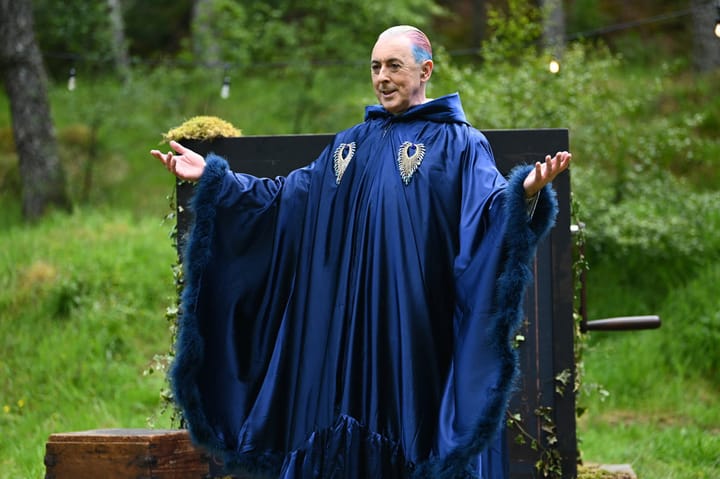


Comments ()